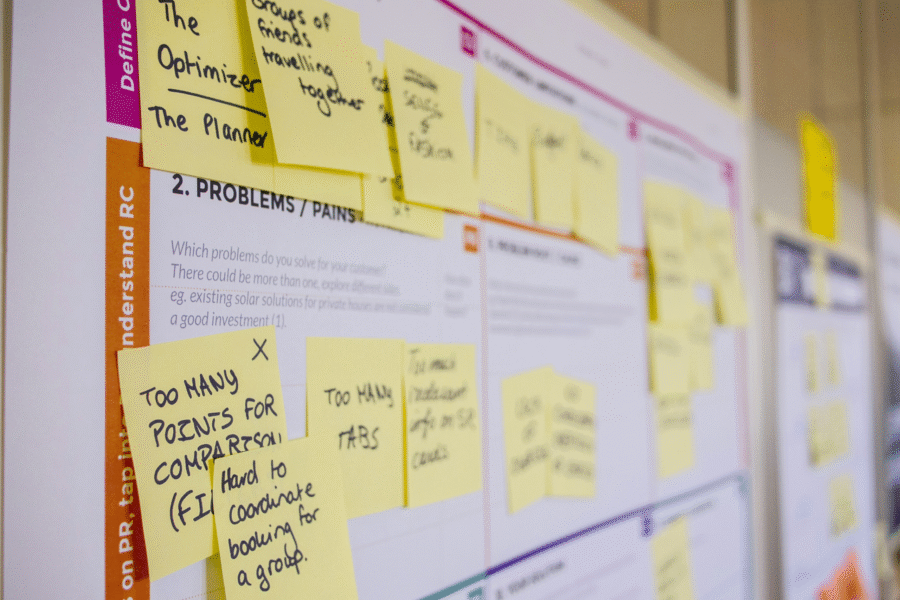Resource management is a critical aspect of project management that has the potential to make or break the success of a project.
Project managers are responsible for effective planning, scheduling, and allocation of resources, for example, people, equipment, software, and expenses. They also need to maximise their utilisation throughout the project.
If resource management is done well, a project can generate profit whilst the agreed scope of work is delivered on time and within budget. In other words, project success. If resources are poorly managed, the project can fall behind and run over budget because the right people or equipment is not available when it is needed.
Data-driven decision-making requires you to gather data as per your business operations and KPIs, process it, and convert it to actionable insights for making the most of the resources available at your disposal.
By harnessing data-driven decision-making, project managers are able to introduce a level of accuracy and certainty to the resource management process.
In this practical guide, we are going to walk you through the process for data-driven decision-making that you can use to make informed decisions regarding resource management.
Data-Driven Decision-Making in Resource Management – Overview
Data-driven decision-making for managing resources involves gathering and analysing facts about the demand and availability of the project resources. It includes setting up resource management metrics, gathering data, and converting it into actionable insights to inform your strategic business resource management decisions.
Data-driven decision-making in resource management helps develop an effective plan of action for allocating and utilizing the available resources, to maximise the return on investment.
Added benefits to managing your project resources well are far-reaching, for example, we see clients making tangible improvements to their environmental sustainability through better project performance management.
A data-driven approach to decision-making in resource management helps take the guesswork out of the equation. Instead of relying on intuition and observation, you make resource management decisions that are backed by thorough data analysis.
Why is Data-Driven Decision Making Important for Effective Resource Management?
Data-driven resource management assists project managers in developing an appropriate resource management plan that meets the short and long-term goals of your business.
Data-driven decision-making in resource management helps project managers analyse the effectiveness of the current allocation strategy, and predict future demands. Gathering and processing data for resource management helps you ensure that your project gets completed on time, and within the budget constraints.
Here are some of the key benefits of data-driven decision-making in resource management:
- Effective resources allocation
- Determine underutilisation and overutilisation of resources
- Identifying, ranking, and assessing resource-related risks
- Future project resource demand forecasting
- Workforce optimisation
- Documented insights for better resource management for future projects
How to Make Data-Driven Decisions in Resource Management?
- Determine Your Resources Requirements
When it comes to decision-making for resources management, you need to start with determining the overall resources requirement that you need to complete the project.
By figuring out the exact amount of resources required, you get to make informed decisions regarding the onboarding, utilisation, and deployment of the people, equipment and software, as well as purchase costs and expenses.
- Keep Track of the Availability of the Resources
As the project progresses, keeping track of resource utilisation becomes of intrinsic importance. You need to be aware of the availability of the resources at each stage to ensure you stay on top of the resource requirements.
Keeping track of resource availability is essential for accurate resource forecasting throughout the project development stage. With accurate details of the resource availability at your disposal, you can streamline your project development operations, without any issues.
- Optimize Scheduling & Budgets
Project budget scheduling is one of the most critical aspects of effective resource management. Based on the data gathered in the initial requirement analysis stage, you can make informed decisions regarding the scheduling of the project’s financial resources.
You can schedule the budget across different project locations and teams, throughout the project lifecycle. As the project progresses further, you can optimize the schedules and budgeting as per the availability of the resources.
- Resources Monitoring
Effective resource management decision-making requires you to stay on top of resource utilisation at all times. You need to set up a system where you get to measure the resource utilisation through each phase of the project lifecycle.
Based on the data that you gather in the resource monitoring stage, you can review the resources availabillity, plan accurate forecasts, and make decisions regarding the changing resource requirements.
- Identify Risks and Conflicts
Effective resource allocation, utilisation, and monitoring results in fast and accurate risk identification and mitigations. By keeping tabs on your project resources, you can make decisions in real-time, regarding the resource allocation and utilisations.
This structured approach to data-driven decision-making in resource management helps reduce the risk of overutilisation. At the same time, resource deployment is streamlined throughout the project delivery phase.
Data-Driven Decision-Making in Resource Management With Proteus
Proteus project software offers you a comprehensive solution for onboarding, utilisation, and deployment of resources. Proteus provides an easy view on the resources required to complete a project during the proposal stage as well as during project execution. Here is a brief overview of Proteus’ resource management features:
Accurate Resource Utilisation
Proteus enables you to allocate your resources to concerned teams separately, within a single console. This feature helps you in coming up with a detailed resource plan for your project.
Resource Availability Management
After you have allocated resources, Proteus keeps track of the availability of the resources throughout the project implementation process. With effective resource availability management, you can accurately forecast the resources required to complete the project.
About Proteus
Proteus developed by a Scottish-based tech company, Xergy Group, is an end-to-end project management solution developed for the energy and engineering consulting industries.
Proteus is industry-proven and enables consultancies to meet project demands across the full lifecycle, from proposal development to project delivery. With robust sales and project delivery modules, Proteus helps its customers win more business, increase efficiencies, manage expenditures, and improve project controls.
Critical workflows, automation, and controls are integrated into Proteus. These include opportunity evaluation, proposal building, resource planning, budget tracking and forecasting, real-time multi-level restricted dashboards, and project performance analytics.
Third-party integrations and customised solutions allow Proteus’ users, which include C-suite, project leads, and engineers, to get the exact software solution needed for their business.
We offer a free onboarding consultation service to ensure your company account is set up to your company’s needs.
How to get Proteus
Proteus operates under a software-as-a-service (SaaS) model. We offer Enterprise packages and flexible pricing solutions: contact our team to learn more.
We designed Proteus to be simple, and that means you can get up and running on Proteus without an IT team or support from a programmer. You will want to spend a bit of time configuring the admin console so that you have everything set up to suit your company structure, but it’s very intuitive and you don’t need a PhD in IT.
However, we want you to get the best out of what is a brilliantly powerful tool, so don’t hesitate to ask for our support. We have a team of product experts who are ready to help you with the configuration process, so get in touch today by filling out the form below:



